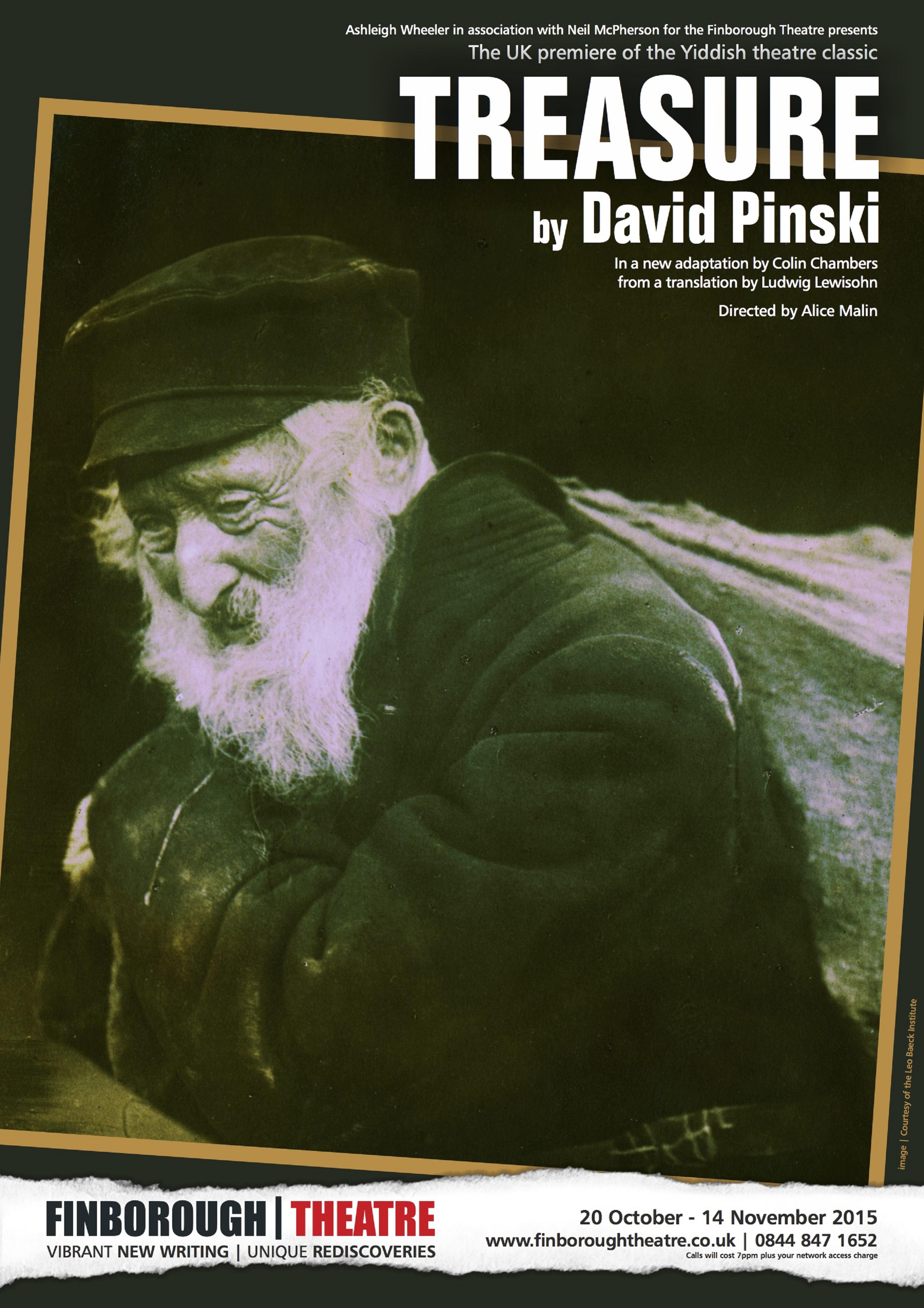A classic of Yiddish theatre has at last had its UK premiere – 109 years after it was written.
Treasure by David Pinski was staged – in English – at the multi-award-winning Finborough Theatre in Earl's Court, south-west London, for a four week season from Tuesday October 20 to Saturday November 14.
Treasure, or Der Oytser, is a humane and exuberant comic fable about money and materialism, as relevant today as when it was written in 1906. The play follows the story of Tille, the poor gravedigger’s daughter with nothing in the world except a head full of dreams. Things look set to stay that way, until the day her brother returns from the graveyard with a pile of gold coins – and Tille is faced with a choice. She can hand in the money and go back to a life of drudgery or she can use it to turn the world upside down. As the village community descends on the cemetery in search of gold, Tille and her family must use their wits to stay one step ahead of those who want their share of the treasure.
The new English language adaptation is by Colin Chambers, former literary manager at the Royal Shakespeare Company. The director is Alice Malin, recent assistant on Dominic Dromgoole's Measure for Measure and Romeo and Juliet at Shakespeare's Globe.
First performed in 1912, Treasure remained popular in the Yiddish repertoire until the 1940s: most notably, Max Reinhardt’s production in Germany in 1919, an English-language version on Broadway in 1920, as well as a production staged in the Vilna Ghetto in 1943.
David Pinski was one of Yiddish theatre’s most notable dramatists and one of its most prolific. He wrote over 60 plays, including The Last Jew (also known as The Zvi Family) and The Eternal Jew.
The first professional production in Yiddish theatre occurred in a wine garden in Romania in 1876. It was followed by an explosion of playwriting and productions all over eastern Europe as well as in America and the UK.
Well known works first written in Yiddish include The Dybbuk, The Golem and the works of Sholem Aleichem, later immortalised in the Broadway musical Fiddler on the Roof. Yiddish theatre had a profound influence on Hollywood and Broadway writers, actors and directors and on 20th century arts generally.
After the second world war, however, performances of Yiddish plays gradually declined. This is a great shame; it is an incredibly vital, vibrant, audience-centric form of theatre.
Producer Ashleigh Wheeler hopes to awaken interest in Yiddish theatre in London and was thrilled to be able to present the UK premiere of this great example of the genre.


